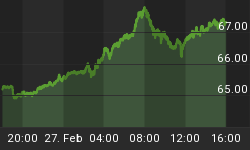Warrants are being mentioned more and more in the traditional media as the U.S. Government has moved to receive warrants in connection with some of the bailout/rescue plans for the Big 3 auto manufactures and also with AIG back in September.
Warrants have a long history going back into the 1920's but the average investor has absolutely no idea what this investment vehicle is all about.

'Warrants are not Rocket Science'
So let's make this simple and provide you with a brief understanding of warrants and why you should perhaps consider warrants in your investment plans. After all this is not rocket science!
- So, what is a warrant?
- Where do they come from?
- Why would an investor want to purchase them?
- What is this term called leverage?
- How and where do they trade?
- Don't warrants have a dilution effect on the company's common stock?
Many great questions which we will briefly discuss to educate investors as to the advantages and possible disadvantages of warrants.
A warrant is very similar to a long-term option. You the investor have the right, but not the obligation to purchase the underlying common stock at a specific price and expiring on a specific date in the future.
The warrants are issued by a company in connection with a private equity financing arrangement, a sale of additional stock in the company, or on the company going public and the warrants are frequently referred to as an "equity kicker", i.e., additional incentive for the purchaser of the common stock to invest in the company. Most of the warrants issued by company's are never traded and remain privately held by insiders and institutional investors. Fortunately, there are many warrants which are currently trading in the United States and Canada for investors to consider for purchase. Many of the warrants are issued for a two year period, but some now are being issued for a period of up to ten (10) years. These long-term warrants give investors a major advantage with the short term volatility in the markets by making time our friend.
Warrants provide the investor the potential for incredible upside leverage over the underlying common stock. Think about it, if the underlying common stock doubles, triples, etc. would not a warrant on this company perform better? Remember, a warrant has a specific expiration date and exercise price and as the price of the underlying common stock rises (remember, we are in a bull market) the warrant will (in most cases) greatly out perform the common stock. Many times the warrants will reflect the potential of a 2:1 leverage over the common stock, meaning simply, if the common stock increases 100%, the warrant will increase by 200%, thus a leverage of 2:1.
So, if your favorite analyst, in their recommended stock portfolio, have companies that have warrants that are trading should you not at least consider the purchase of the warrants in lieu of the common stock? We ask, why not?
Unlike options, warrants trade exactly like the underlying common stock. No special paperwork to fill out or additional requirements by investors. They are assigned a trading symbol and can trade on the NYSE, AMEX, NASDAQ, or in the Over-The-Counter market. As many of the warrants trading are on Canadian mining companies, these warrants are assigned a symbol so the trade can be performed in the Over-The-Counter market in the United States.
Dilution Effect: Isn't it true that if a company has warrants outstanding that this will have a dilution effect on the capitalization and earnings of the company? Of course! As an accountant by training we fully understand that if the warrants are one day exercised that there are more shares outstanding and thus a dilutive effect does occur.
However, are not investors looking for a bigger picture, a bull market, if you will, that will take the company's shares much higher? If so, the warrants, as explained previously will out perform the common shares. We believe many companies with warrants trading will continue to acquire additional properties and increase reserves thus bringing additional value to the company and offsetting some, if not all, of the dilutive effect.
The point here is that if an analyst is recommending the purchase of a company's common stock or an investor is contemplating the purchase of a company's common stock should you not first ask, the question, does this company have any warrants currently trading, how much time remains on the warrants until they expire and what is the leverage potential?
Currently there are warrants trading on some of the large producers as well as many of the smaller junior mining companies with expiration dates of 2011 and out to 2017 providing investors with some incredible opportunities. For those readers interested in learning more about warrants we encourage you to visit our website.















